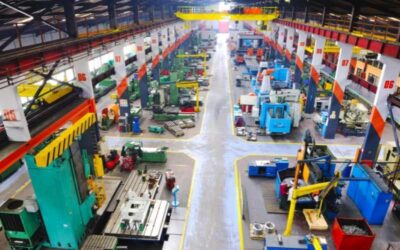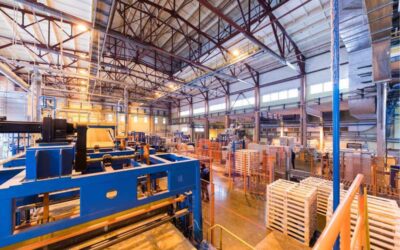The pandemic has caused severe financial and operational disruption in the manufacturing industry. Our industry experts have created and compiled several resources to help you tackle these challenges to navigate these unprecedented times. Here is a list of the top questions we hear from industry clients and peers.
Q: WHAT ARE THE TOP THREE CONCERNS WE HEAR FROM OUR MANUFACTURING CLIENTS?
- Maintaining a full-time, healthy workforce.
- Material price increases.
- Downward pressure on demand, production, and revenues.
Q: WHAT HAVE WE ADVISED OUR MANUFACTURING CLIENTS TO DO TO MEASURE THEIR BUSINESS PERFORMANCE IN THE COVID-19 ENVIRONMENT?
A: The pandemic has made it difficult for companies to measure their current performance, as events and government policies have changed how businesses can operate. The use of benchmarking and key performance indicators is vital to correctly measuring performance during the pandemic. As historical standards across the manufacturing industry have seen significant changes under the pandemic, companies will have to focus on more short-term information. Monthly or weekly information for your company can be compared to previous time periods during the pandemic. The shorter time frame can help to measure pandemic performance better and to help make more proactive decisions. Also, industry reports available online can be used to compare your manufacturing company’s performance to others in the industry during the pandemic. Click to read: Metrics & Benchmarking for Manufacturing Companies
Q: WHAT HAVE WE ADVISED OUR MANUFACTURING CLIENTS TO DO TO LESSEN THE IMPACT ON THEIR BUSINESS?
A: We have advised our clients to think long-term. We can still weather the storm with proper planning and thoughtful decision-making. We recommend the following:
- Cashflow analysis and projections are vital. We recommend creating a 14-week cash flow forecast.
- Be aware of alternate funding sources, such as SBA loans or other federal or state programs.
- State and local funding allocated to industry services is expected to be impacted over the coming years. Therefore, we recommend planning for additional shortages and reforecast financial plans.
Q: WHAT TAX RELIEF OPTIONS ARE AVAILABLE FOR MY MANUFACTURING COMPANY?
A: The new relief bill provides support for businesses during the ongoing pandemic. Please read our latest blog post regarding PPP applications and the employee retention credit.
Q: WHAT ARE COMMON TAX-SAVING OPPORTUNITIES AND CREDITS FOR THE MANUFACTURING INDUSTRY?
A: Manufacturing businesses need to know any tax savings opportunities that may arise from the previous year’s operations. Though many tax planning instances are on a case-by-case basis, this article highlights a few common strategies and credits that may apply to a typical manufacturing company.

Q: HOW CAN MANUFACTURING COMPANIES PREPARE FOR THE AFTERMATH OF COVID-19?
A: The future is unclear, but we know this much is true: knowledge is power. No matter what happens next, robust and flexible cost and margin data will help you make reliable decisions — the kind of decisions that help you thrive despite uncertainty. The post-pandemic recession and subsequent recovery will mean making tough but critical decisions about labor and expense cost adjustments, aggressive pricing on new work, and product and customer rationalization, to name a few. Each of these decisions requires an accurate understanding of costs and margins, with the ability to model and evaluate multiple scenarios. These scenarios demand different management responses to ensure the necessary resources (cash, people, machine capacity, supply chain, etc.) are in place to optimize the company’s financial performance and market position.
To solve the immediate challenges needed to keep the business afloat, many have formed rapid response teams to understand better their labor support challenges, supply chain ecosystem constraints, and production demand changes. On the other hand, many have also focused on building a future-proof business that uses new technology solutions to increase resilience, support workers, and sustain a competitive market advantage to accelerate business growth once the economy starts to rebound.
Q: WHAT OPTIONS ARE AVAILABLE TO MANUFACTURING COMPANIES THAT MAY NOT SURVIVE AN ECONOMIC DOWNTURN?
A: COVID-19 has been a trying time for businesses, and it may be the right time to take advantage of business transition opportunities. Smith Schafer can assist with an evaluation by performing a business valuation. There are three options for business valuations:
- Detailed Valuation Report
- Summary Valuation Report
- Calculation of Value
All three of these options are different in content and investment, and each will provide a value or range of values. The exercise of conducting a business valuation will provide the business owner with an estimate of how the pandemic has affected the value of their business and identify areas that have changed that directly affect value. A business owner can use this information to focus on key drivers to improve financial results and restore the value that may have been affected by the pandemic. In addition, this information will assist in strategically making decisions around business succession and transition.
QUESTIONS?
Contact us today to work with a Smith Schafer expert to help you leverage opportunities and make the best decisions for your manufacturing business. Our team is committed to serving over 100 manufacturing companies. Smith Schafer has the experience and understanding of the industry to make a lasting positive difference in your future success.



